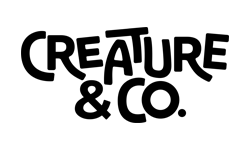Can content truly change people’s perspectives?
At Creature & Co., we believe in inspiring positive, purpose-driven and long-lasting change; tackling the big issues that affect everyone. This means helping brands and businesses to communicate effectively with people who don’t always share their point of view – people who perhaps don’t believe in, don’t engage with, or simply don’t know about an issue.
Through positive, authentic, inspirational communication on challenging issues, we help to break down barriers and give people the information, opportunity, and strength to change their perspectives. Join us as we explore how beliefs are formed, and how, as content creators, we can influence them positively…
From politics to climate change, there are some issues that provoke strong opinions – beliefs that are as fiercely attacked as they are passionately defended. The world is full of opinions that run contrary to our own (whatever they might be), and we may find ourselves screaming in frustration, “How can someone actually believe that?!”
Of course, everyone is entitled to their opinion but the fact is, we as humans still want to change people’s minds, especially on crucial global issues such as the reality of climate change.
So why do people believe what they believe, and how can we challenge those beliefs?
Beliefs are powerful and necessary, both to individuals and to society. They offer a framework that governs our thoughts and actions at every level, from believing that hard work will bring success, to obeying rules because it’s the right thing to do.
Beliefs are built on complex factors…
– We believe some things because we observe a pattern of experience; we believe a dropped stone will fall downwards.
– Some things we believe because a trusted source tells us; we believe gravity pulls the stone to Earth because a science book says so.
– Other beliefs are passed to us by our families and communities; belief in a particular value system.
– And some things we believe despite logic or despite evidence to the contrary. This is because our brains sometimes take facts and fit them to reinforce a belief we hold. The strength of these beliefs is often determined by emotions and can be deeply held; they also extend to our social interactions, like herd animals, we will seek the company of like‐minded people, which further reinforces our convictions – also known as an ‘echo chamber’.
We’d forgive you for thinking that beliefs that run contrary to logic or evidence should be easy to change. Surely, you simply present the proof of climate change, for example, and deniers will see the error of their ways? Sadly, it doesn’t quite work like that.
Beliefs are deeply held, and the brain is programmed to protect them. When a belief, however irrational, is challenged, areas of the brain, such as the amygdala, kick in to defend them. We are inclined to avoid and ignore anything that threatens our ‘belief’ (hence why we tend to surround ourselves with like‐minded people), and it seems that the bigger and more important the belief, the more deeply and strongly it will be held, and the harder it will be to change.
That said, we still all try to change people’s minds and beliefs can be changed. One school of thought is to step back and not try to argue or convince. There is an old adage that asks:
How many psychiatrists does it take to change a lightbulb?
To which the answer is,
None; the lightbulb has to want to change itself.
The reality is that you can’t force someone to believe something they don’t want to, as an individual or a brand. Forcing your opinion on someone will only put their brain into defensive mode, making them more resistant to change.
Instead of criticising and condemning, be respectful and understanding of why someone might hold their beliefs; pose open questions that allow them to reflect on their position and give them the space to change their own mind. Present information simply, clearly, and non‐judgmentally, citing trusted and impartial authorities. And most importantly, keep it positive and inspiring.
Positivity can really help to change beliefs. Many people are afraid to change their minds, especially on big issues such as climate change. They might be embarrassed to admit when they’re wrong, afraid of being ostracised by like‐minded peers, and even anxious at having to face up to a previously denied problem.
Presenting your alternative opinion with positivity can help overcome these barriers. When it comes to the climate crisis, for example, eco‐anxiety can be a major barrier to belief. When climate issues are presented negatively, it can trigger feelings of despair and hopelessness that lead to denial. Instead, highlight the problem and the solutions, including the many ways we can all make a difference individually and collectively, to make it easier for deniers, or those sitting on the fence, to engage with the issue.
You can read more on how to communicate challenging topics positively, in our features on Fun Theory, the Psychology of Content and our webinar on How To Make Sensitive Topics Engaging.

